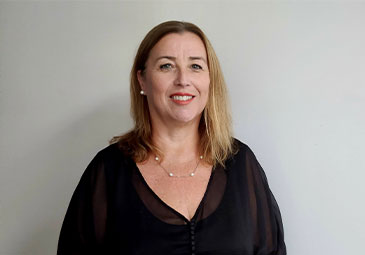AIM Congress
Abu Dhabu 7 May 24 | GST: 03:25 PMAIM Congress (Annual Investment Meeting) is an initiative of the AIM Global Foundation, an independent international organization fully committed to empower the world’s economy by boosting effective promotion strategies and facilitating opportunities for economic productivity and expansion.
Global Economic Outlook: Q1 2024
13 Feb 24In 2024, the global economy is expected to register slowing growth for the second consecutive year. This is primarily due to the dampening effect of high interest rates in most major economies globally, in addition to weakening growth in China, the world’s second largest economy. Yet, this comes after global growth consistently outperformed expectations in 2023, withstanding numerous headwinds, especially ongoing and widening geopolitical tensions.
GCC Future Outlook Summit
Fairmont Dubai, UAE 22 Feb 24 | GST: 09:00 AMJoin Euromonitor International at this event to delve into the dynamic landscape of consumer trends, innovations, and economies.
The Global Economy in 2024: Opportunities and Risks
11 Dec 23While global GDP growth exceeded expectations thus far, the outlook for 2024 suggests subdued growth due to tightened financial conditions and economic slowdown in major economies. To navigate these challenges, your business needs to build resilience in the face of uncertainty and maintain a growth-oriented approach. Watch this video to understand the economic risks and opportunities in 2024.
Eyes on Africa: Unlocking Potential Through Digital Transformation
Virtual 22 Nov 23 | SAST: 01:00 PMWith a promising projection of over 76% internet access among sub-Saharan Africans by 2040 and a GDP expected to soar to USD 4.5 Trillion within the same timeframe, the digital revolution unveils unprecedented avenues to tap into this burgeoning future market.
A More Durable Tourism Model: Building Back Better in Europe
1 Sep 23Building back better is one of the most discussed ideas in tourism this year, particularly in Europe, and especially in the context of the post-pandemic rebound. Euromonitor International’s Sustainable Travel Index offers unique insights into resilience, overtourism, and value creation.
Global Inflation Tracker Q3 2023: Inflation Eases While Global Divergence Accelerates
23 Aug 23Global inflationary pressures are predicted to moderate further over 2023 and 2024. Slower economic growth, stricter monetary policies of the central banks and supply chain improvements contribute to the price stabilisation. However, there are divergent inflation trends in the largest economies due to differences in the economic performance, labour and energy markets.
China’s Slowdown and Deflation Risks: Why it Matters for the Global Economy
18 Aug 23China’s post-pandemic economic recovery is slowing, following declining demand for the country’s exports and sluggish growth of domestic consumption. Ongoing real estate market problems spark concerns over the stability of China’s financial system, risking a deeper downturn for the Chinese economy. Weakening growth and rising risks in the world’s second largest economy can have significant impacts on the global economy, with important implications for global businesses and consumers. Euromonitor International answers the most frequently-asked questions around China’s economic challenges.
Vietnam Trade & Investment: Unveiling success formulas
Australasia 31 Aug 23 | AET: 04:00 PMInternational trade and foreign investments are quickly changing in Vietnam. This is creating new opportunities for businesses and connections in Southeast Asia.






